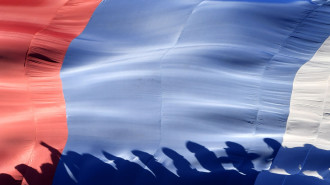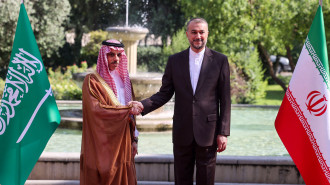UN pleads for Eastern Ghouta ceasefire to avert 'massacre'
"There is a need for avoiding [a] massacre, because we will be judged by history," Staffan de Mistura said.
More than 400 people have been killed, including 150 children, in the besieged enclave since the Syrian regime escalated its bloody assault, reported the Britain-based Syrian Observatory for Human Rights.
"The rocket fire hasn't stopped this morning. Around 200 ground-to-ground rockets struck Douma alone," said Rami Abdel Rahman, the head of the Observatory on Thursday.
Horrific footage and images appearing online show piles of dead bodies in hospitals and corpses of children retrieved from the rubble.
Medical facilities have been targeted by airstrikes, making it near-impossible to treat the estimated 1,700 wounded in the past few days.
|
Exclusive video: Snapshots of a |
Russia, the Syrian regime's main ally, said earlier on Thursday day that it would "consider" supporting a UN Security Council resolution calling for a ceasefire in Syria, only if it did not stop it from attacking fighters from an armed group formerly known as the Nusra Front.
The proposed 30-day UN ceasefire, drafted by Sweden and Kuwait, would also allow humanitarian deliveries and medical evacuations to and from the besieged opposition enclave of Eastern Ghouta, close to Damascus.
Opposition forces have hit back at such conditions, saying that the small number of former Nusra militants has been frequently used as a pretext for continuing bombardment and the ongoing siege of the area.
The "de-escalation zone" agreement meant to cover Eastern Ghouta has done little to stem the fighting and brutal assault in the past few months, as it does not cover the Islamist faction.
A Syrian search-and-rescue group has described the regime's military operation as an "extermination", adding that schools, hospitals, markets, rescue workers and residential areas have all come under concentrated fire.
Strange bedfellows
Assad's attack comes at the same time as Turkey's offensive in Syria's Kurdish-held northern enclave, dubbed Operation Olive Branch. Kurdish militia fighters have reported that pro-government troops have been deployed to front lines to help repel the Turkish advance, adding that assistance would be needed from the Syrian army itself.
Earlier in the week, the Syrian Kurdish Democratic Unity Party said an agreement had been reached with the Syrian regime and the Syrian Democratic Forces (SDF).
| | |
| Watch: Hospitals have been bombed during the attack [AFP] |
Ankara is fiercely opposed to the SDF, which is dominated by the Kurdish People's Protection Units (YPG) - considered by the Turkish government to be a terrorist group allied to, or part of the outlawed Kurdistan Wokers' Party (PKK), which has waged a bloody insurrection against Turkey for nearly 35 years.
But the 50,000-strong YPG has been a key ally of the US in eradicating the Islamic State group from northern Syria and has been armed by Washington since May 2017.
Turkey, a strong backer of the anti-Assad rebels in Syria's north, has been largely silent on the Syrian regime's bombardment.
Global outrage
A statement released by the White House gave Washington's backing to the UN call for a ceasefire in order to allow for aid and medical evacuations:
"The United States also calls upon Russia and its partners to live up to their obligations with respect to de-escalation zones, particularly those in Eastern Ghouta and to end further attacks against civilians."
World leaders and government officials have condemned Damascus for raining bombs on an area to which it has laid siege for months.
German Chancellor Angela Merkel on Thursday called for an end to the Syrian regime's air raids that have killed scores of civilians.
"The killing of children, the destruction of hospitals - all that amounts to a massacre that must be condemned and which must be countered with a clear no," she said.
Boris Johnson, the UK's foreign secretary added: "I am utterly appalled by the brutal and merciless violence that the Assad regime is inflicting on the people of Eastern Ghouta. They are enduring a hell entirely of the making of Assad and his enablers."
 |
The killing of children, the destruction of hospitals - all that amounts to a massacre that must be condemned and which must be countered |  |
Arab leaders, while slow on the uptake, have similarly released statements calling on the Assad regime to "stop the violence". The Saudi foreign ministry tweeted earlier in the day their "concern" over the continued regime attacks, however stopped short of an outright condemnation.
Humanitarian fears
Aid groups and NGOs have slammed the regime's brutality, with Save the Children describing the extent of the campaign's destruction as surpassing even the Aleppo crisis in 2016.
The International Committee of the Red Cross said it was "shocked" by the level of violence near the Syrian capital, describing the statistics as "staggering".
The UN's children's agency UNICEF issued a blank statement in response to the unprecedented levels of violence. "UNICEF is issuing this blank statement. We no longer have the words to describe children's suffering and our outrage," it said, followed by ten blank lines, concluding:
"Do those inflicting the suffering still have words to justify their barbaric acts?"
Eastern Ghouta is home to more than 400,000 people living under crippling regime siege, with little access to food or medical resources. World leaders and government officials have sharply criticised the Assad regime for its indiscriminate bombing and called for an immediate halt.
The escalating bombing campaign suggests the regime is paving way for a ground assault. Held by rebels since 2012, Eastern Ghouta is the last opposition pocket around Damascus and President Bashar al-Assad is keen to retake it, seemingly at any cost.
![Ghouta [Getty] Ghouta [Getty]](/sites/default/files/styles/image_345x195/public/media/images/747AE440-A9E0-4521-9F8E-B408C5AAB494.jpg?h=d1cb525d&itok=9G6cAO2O)
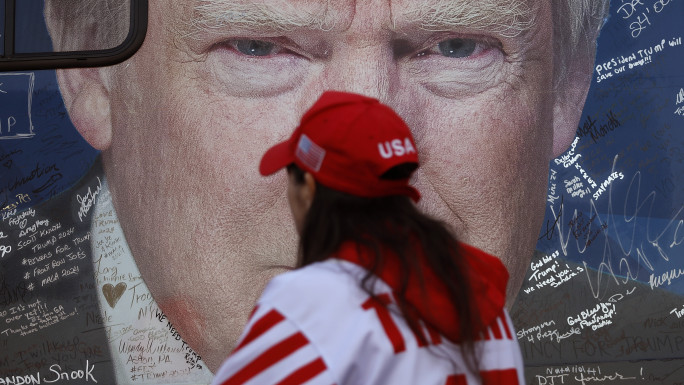
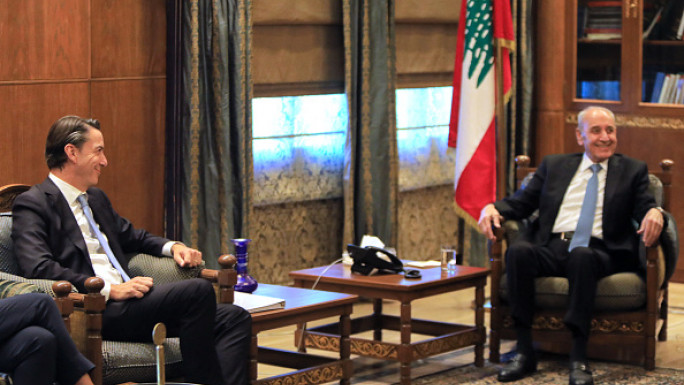
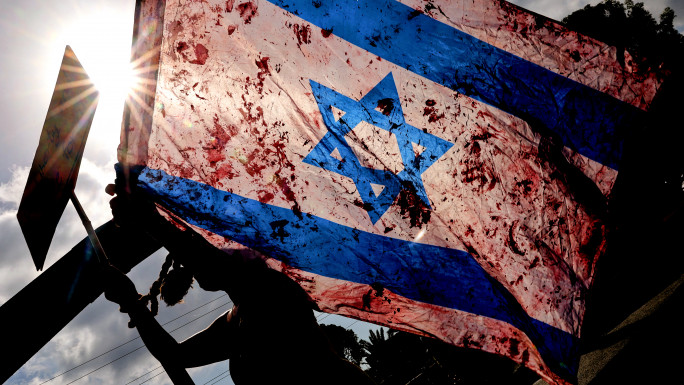
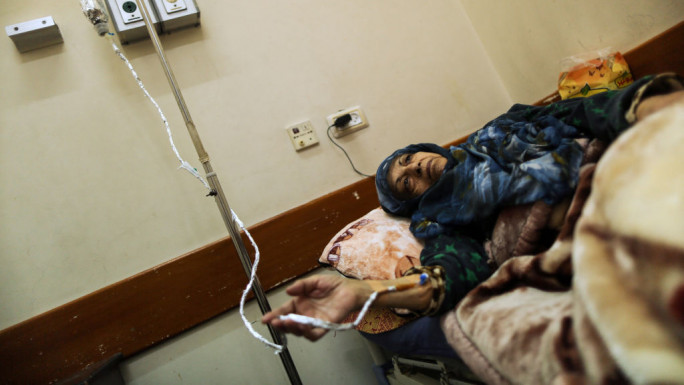
 Follow the Middle East's top stories in English at The New Arab on Google News
Follow the Middle East's top stories in English at The New Arab on Google News
